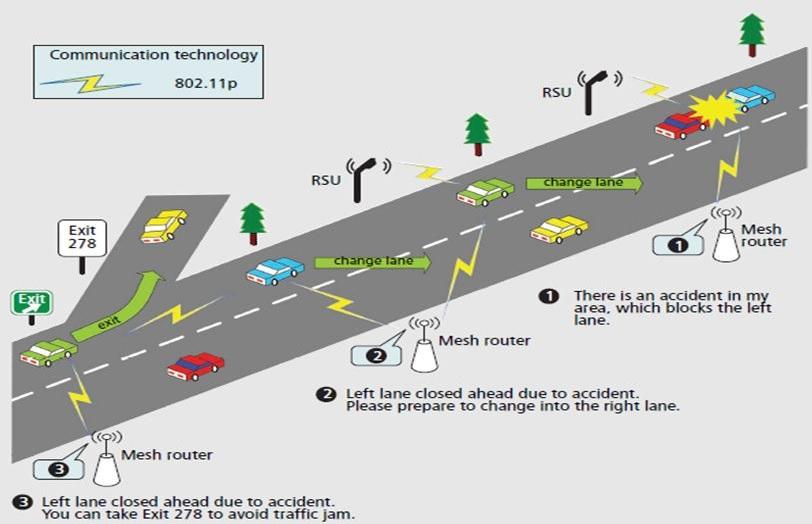Researchers Vehicular ad hoc network (VANET) to improve traffic safety and driving experience. This is realized by equipping vehicles with capacity to talk to each other. Vehicular communication security and privacy are viewed as a major obstacle to widely deploy VANET. Most existing works devote to the authenticity and identity anonymity of vehicle-to-vehicle (V2V) communications. In their research, they investigate secure vehicle-to-infrastructure (V2I) communications for applications in which a traffic monitoring center collects information about the traffic and road status through VANET.

They propose a scalable privacy-enhanced traffic monitoring (SPETM) framework. In this framework, the traffic monitoring center can collect authenticated individual vehicle driving status and the road usage information, with the help of the distributed roadside units (RSUs) who can simultaneously obtain local view of the traffic in their respective domains. Neither external attackers, malicious vehicles nor compromised RSUs can know the identity of the reporting vehicles, which guarantees enhanced privacy for vehicles. However, misbehaving vehicles abusing the privacy mechanisms can be jointly traced by the semi-trusted vehicle management authorities, which provides desirable liability in privacy-preserving vehicular reports. The researchers instantiate a concrete SPETM scheme with well-established cryptographic technologies. Thorough analyses show that their scheme is secure and practical for deployment.
Please, read the full paper at: https://link.springer.com/article/10.1007%2Fs00500-015-1737-y

Scalable privacy-enhanced traffic monitoring in vehicular ad hoc networks (VANET)
Posted by
admin
7 years Ago
17th November 2017
Shares
What’s your reaction?
Shares
admin














